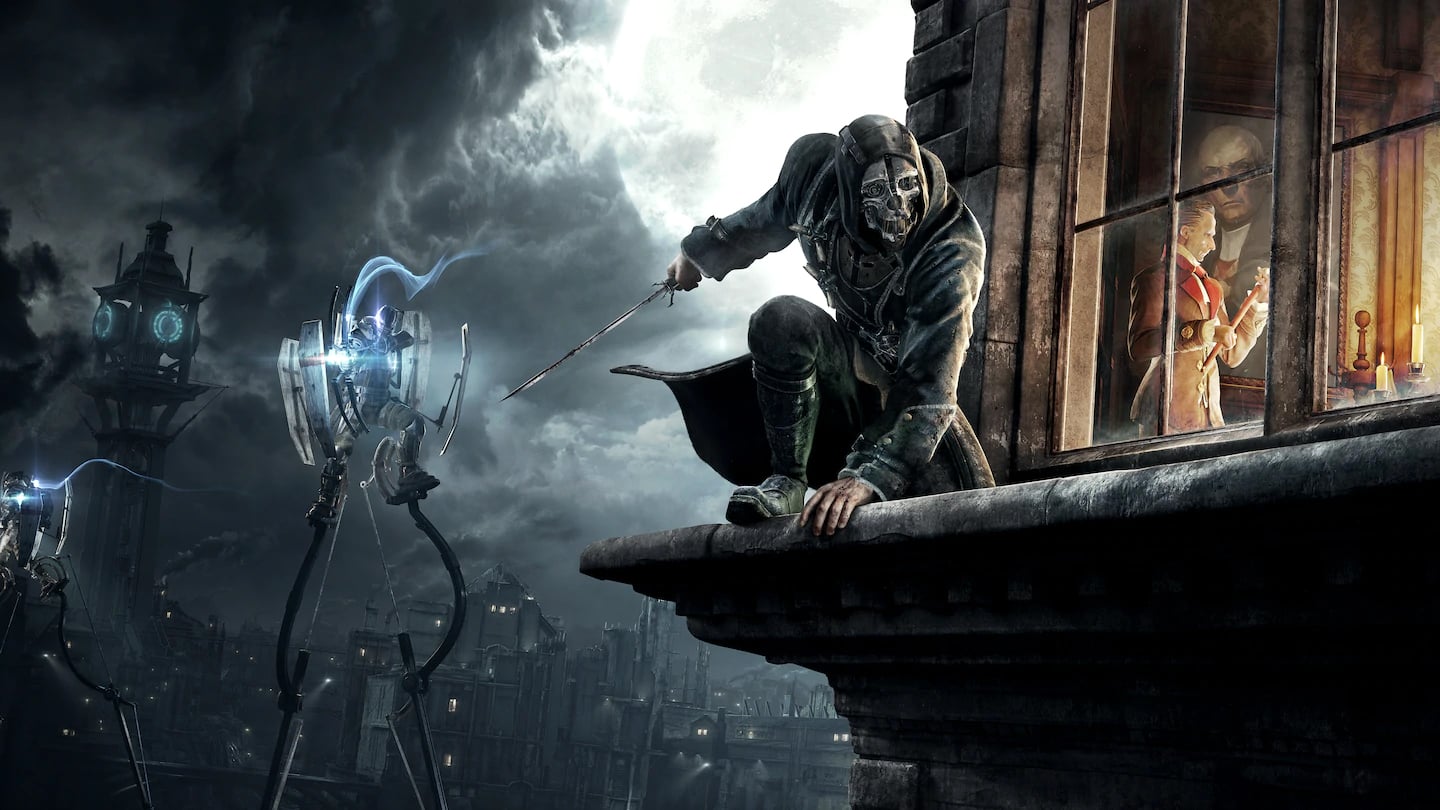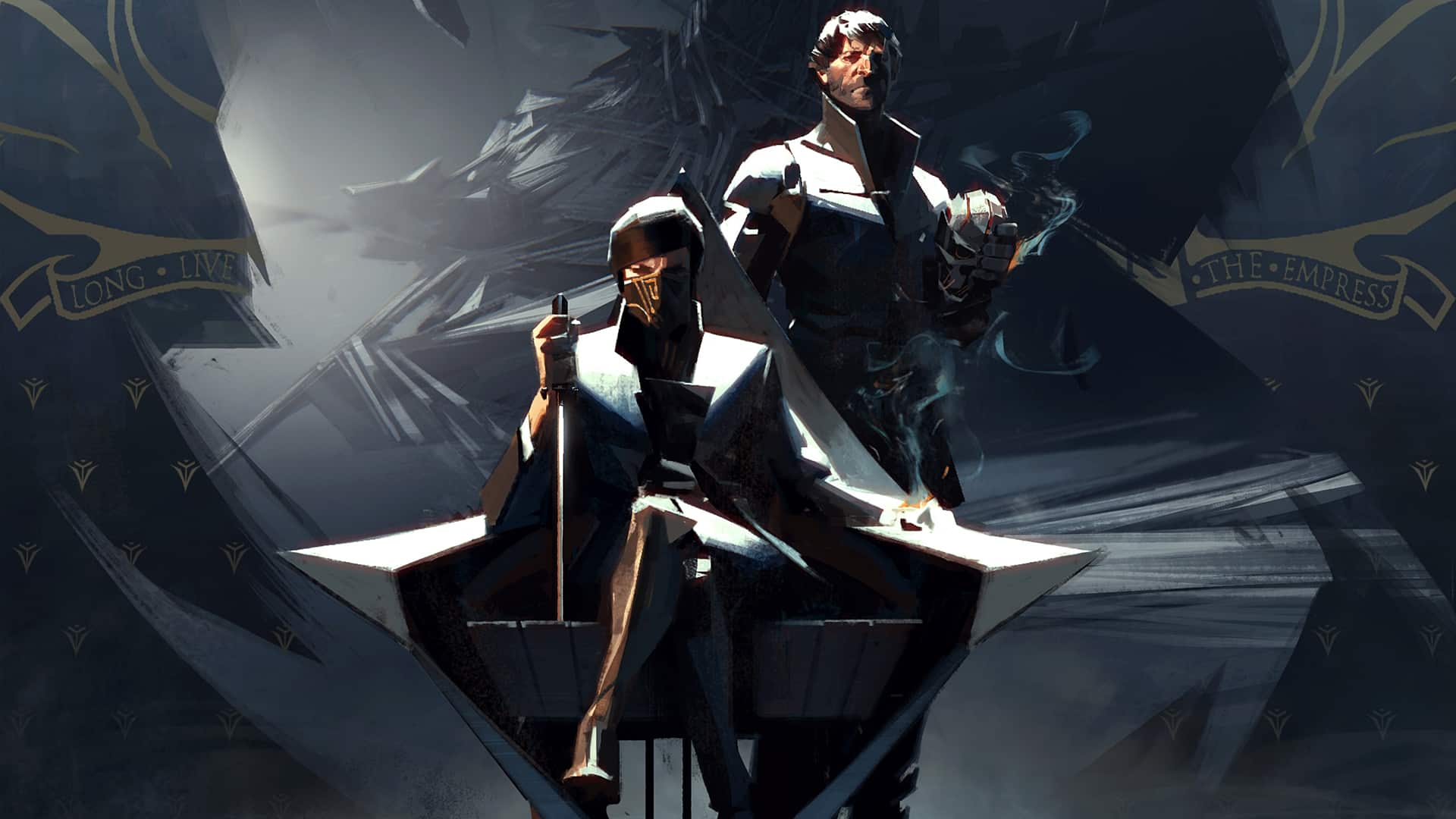We all need to escape every now and again. If the raging dumpster fire of 2020 showed us anything, it’s that a sense of calm is in short supply, and like many, I turned to games for that fix. With a crumbling world and months on end stuck inside, games have a special way of allowing us to let go of the troubles of the real world and exist in the fantastical.
For some time, I have been searching for my perfect Zen game. First to mind might be moody platformers like Ori and the Blind Forest or Braid, atmospheric experiences like Dear Esther or Journey, or rhythm games like Thumper and Guitar Hero. All of those games have a special place in my heart, but at this strange time, they no longer calm me.
It’s odd, then, that my Zen fix for 2020 involves sitting atop a crumbling Victorian mansion, deciding to immolate a guard with a flaming crossbow bolt, get him devoured by flies, or just choke him out. In other words, I’ve been revisiting Dishonored.
The Dishonored series, now two games and several expansions deep, is an exploration of the immersive sim — a genre defined by small, deeply complex levels, a series of interlocking mechanical systems, and a ton of player freedom. First popularized by System Shock and seeing its lineage through BioShock, Prey, Deus Ex, and Thief among others, one would be forgiven for wondering how they could be calming. All of them are hyper-violent, driven by chaos, and oftentimes high-octane. Yet these games gave me a sense of serenity that I couldn’t find elsewhere.

Revisiting many of the other classic immersive sims, I found myself even more drawn in. This wasn’t just the beauty of Dishonored’s Dunwall or Karnaca; this was something more. The locations are beautiful and incredibly well-realized, but when playing System Shock 2, I felt the same sense of calm — even though the Von Braun and Rickenbacker are about as aesthetically opposed to Dunwall as they could possibly be.
The real Zen in an immersive sim is that the game itself feels like a puzzle box. Especially with the Dishonored series, where quicksaves are encouraged, the levels almost tempt you to pick them up and play around with them. Would blinking to this ledge get me close enough to snipe this guard? Should I go in the front door with my pistol out or sneak up the architecture? How am I going to make this level my own? The questions are baked into the very fabric of these games, and with the focus on stealth, Dishonored lets me sit back and breathe.
Every year since release, I go back and do a nonlethal ghost playthrough of either Dishonored or Dishonored 2. You can’t kill anyone, and you can’t be spotted. In most games, that kind of playthrough is a joke. It’s a meme or at most something that you do for the achievement. I’d argue that with Dishonored, a nonlethal ghost run is the best way to experience the game, as it allows me to spend the most time in these worlds.
As I was writing this, I decided to replay my favorite level in the entire series: The Clockwork Mansion in Dishonored 2. On top of being the most mechanically dense level in the game — if not the entire series — it’s huge. The whole level is a sprawling journey through the death trap of a madman, with dozens of potential paths. I spent three hours there, but not because I failed. In fact, I only had to reload my save once because I love to explore. I haven’t meaningfully seen friends in person in months, and outside seems even more alien than ever, yet I spent several hours finding little nooks with visual storytelling in a game that came out four years ago.

Perhaps that’s what draws me to the immersive sim. It’s not safe to be in the real world frivolously, but in games, I can exist without worrying that I may catch something more than an epic kill combo. In a real world that consistently feels out of my control, games like Dishonored give me a modicum of agency. More and more, I understand the horrors of the plague in Dunwall. In Dishonored, Corvo can stop the plague if he doesn’t kill too many people. In the real world, I can’t do that so easily.
It’s an intersection of comfort. With control, agency, and the ability to exist in a world detached from our own, the crumbling buildings and corrupt institutions of Karnaca and Dunwall have an unexpected calming effect.
As I stand on the edge of a dock in Karnaca, looking at the waves crash against a rotting whale, I smile. Whether or not Corvo or Emily get their revenge, I don’t care — not in this moment, at least. I may be stuck inside for a while, but at least I have some place I can be free. Perhaps I can escape.





Published: Jan 2, 2021 01:01 pm